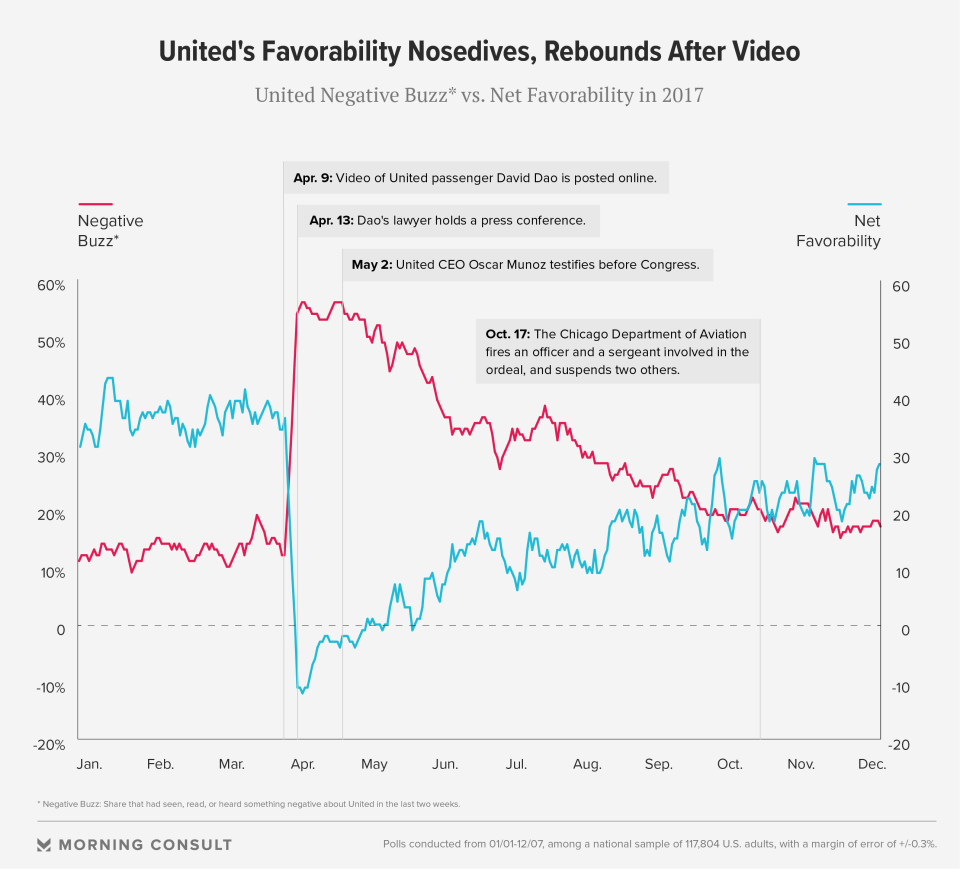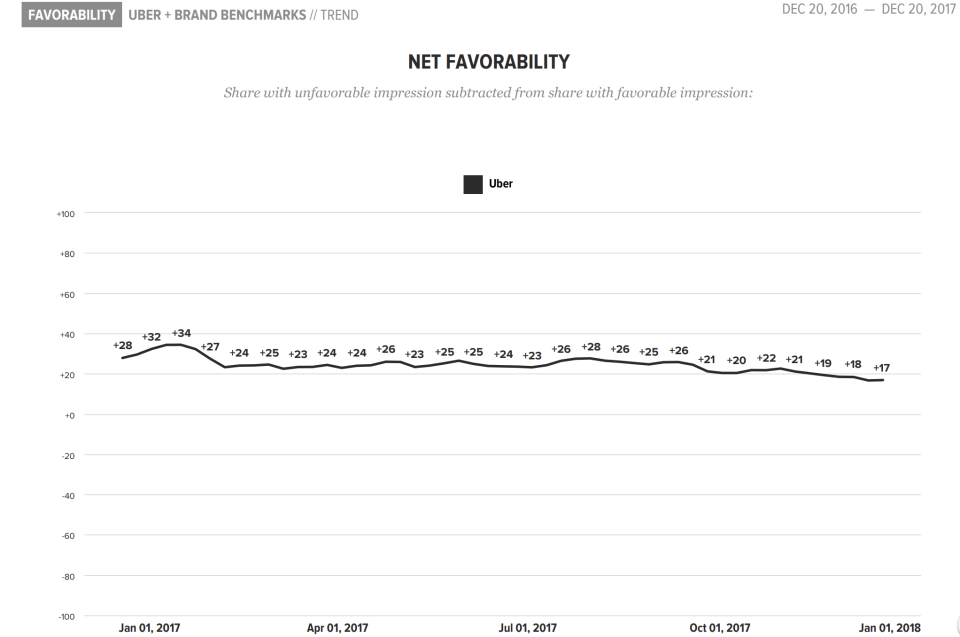Survey finds United Airlines, Uber bounce back from scandal-ridden 2017

Now that 2017 is behind us, so are the big scandals of United Airlines and Uber, at least in consumers’ mind.
Nearly nine months after a video of a 69-year-old passenger being forcefully removed from his seat went viral, consumer favorability of United Airlines (UAL) has recovered to the same level prior to the incident, according to a survey conducted by Morning Consult Brand Intelligence.
The rebound is a stark contrast to people’s reactions right after the incident: #BoycottUnited had been used more than 3.5 million times on Twitter within days of the video and United’s CEO Oscar Munoz was widely criticized for his poor response, making no reference to the passenger in his initial apology.
Is United better or are there simply not enough options?
Despite the boycott, threats, and drop in favorability right after the incident, Morning Consult’s survey shows people’s purchasing consideration didn’t change that much. United’s earnings report in July suggested the same: It recorded 71 million passengers in the first half of the year, 4.2% more than the previous year, bringing profits up by 49%.

Even if people want to vote with their wallets, it might not be realistic in the oligopoly airline industry. The four largest airlines now control more than 80% of the market in the U.S., and United is the fourth largest carrier by passenger traffic — operating more than 4,500 flights a day to 339 airports.
“When you look for flights, you’re going to choose the cheapest one or the one that takes the least amount of time. There aren’t that many options,” said Jeff Cartwright, managing director at Morning Consult. “You don’t really have a choice when it comes to whether you like it.”
Limited by schedule and price, it’s not practical for people to boycott United. The company also tried to win customers over by matching fares to compete with low-cost rivals. In a November survey from Morning Consult, only 14% customers said they were willing to pay an extra $66 to take American Airlines instead of United, compared to 40% right after the April incident.
“The services provided by most domestic airlines are indistinguishable,” says Deb Gabor, CEO of brand strategy consultancy Sol Marketing. “Public memory is also very short. We remember the scandal until the next one comes out.”
Uber seemed to survive the turmoil, thanks to timing
2017 was also an eventful year for another transportation brand — Uber. When Trump’s travel ban was first announced in January, there was a wave of #deleteUber following critics on its attempt to capitalize on airport strikes. Later, the world’s largest ride-hailing app made headlines for a dozen of scandals including sexual harassment allegations, workplace misconduct and leadership issues.

Though favorability towards Uber gradually declined by 27% over the year, it remained relatively steady when the company was in the center of turmoil earlier this year, according to data from Morning Consult.
Like United, Uber also provides utility and it’s hard to find a substitute in some situations. Though Lyft has aggressively captured more market share domestically, Uber still has a stronger footprint in more than 70 countries.
Deb Gabor of Sol Marketing thinks people are less surprised by Uber’s scandals because Silicon Valley’s broken culture is nothing new. Uber is just the latest example of that.
The power of scandals on brand images also has a lot to do with timing, Gabor said. “Right now, people are highly aware of workplace misconduct and sexual assault, just as what I’ve seen as the ‘Weinsteinification’ of the workplace. If the Uber story came out today, people will pay more attention.”
Krystal Hu is a reporter at Yahoo Finance. Follow her on Twitter
Read more:
Bitcoin miner: ‘I haven’t paid for heat in three years’
iPhone users are already ditching the month-old iPhone 8
Why Uber had to abandon 2 big international markets — Russia and China


